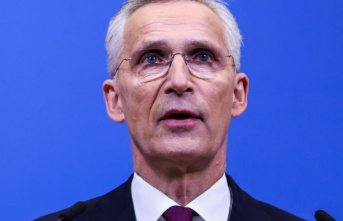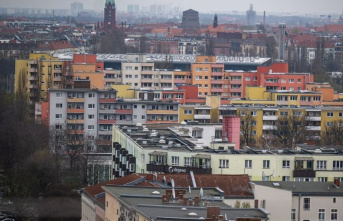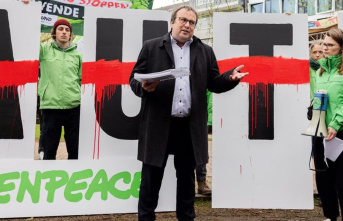Around 2.4 million people can vote on more speed in climate protection in a referendum in Berlin on Sunday. A "climate restart" alliance wants to ensure that Berlin commits itself to becoming climate neutral by 2030 and not by 2045 as previously planned. The country's energy transition law is to be changed for this purpose.
In order to achieve this, a majority of voters must vote in favor of it, but at least 25 percent of those entitled to vote. Around 608,000 yes votes are therefore required. If this succeeds, the law is deemed to have been passed and comes into force. The alliance had forced the referendum with a four-month collection of signatures, in which around 260,000 people signed for the request last year.
Supporters of the referendum gathered on Saturday in front of the Brandenburg Gate in Berlin for a rally with various concerts. The musical program ranged from the German band Element of Crime to the musician Annett Louisan, the alternative rock band Beatsteaks and pianist Igor Levit.
What does climate neutrality mean?
Climate neutrality means that no greenhouse gases are emitted that exceed those that are absorbed by nature, for example. To achieve this, emissions that are harmful to the climate, for example from combustion cars, airplanes, heating systems, power plants or industrial companies, would have to be reduced by around 95 percent compared to 1990.
The initiative deliberately leaves the answer to the question of how exactly this is to be achieved in Berlin by 2030 to politicians. The most important parameters are well known: energy-efficient refurbishment of buildings, fossil-free energy and heat generation, expansion of public transport and zero-emission cars, especially with electric drives. In Berlin alone, this would require investments in the tens or hundreds of billions - regardless of the annual goal of climate neutrality.
For comparison: Germany wants to become climate-neutral by 2045. The EU wants to be there by 2050. Accordingly, there is a lot of skepticism when it comes to the question of whether Berlin can already achieve this by 2030. The initiators of the referendum and their supporters in environmental organizations, the tenants' association, initiatives and in the cultural scene, but recently also in the Greens and Left affirm that.
Berlin's Laws
In a statement, the red-green-red Berlin Senate, which was still in office after the repeat election, classified this as unrealistic. Berlin already has one of the most ambitious climate protection laws in Germany and is one of the "climate policy pioneers" with the phasing out of lignite in 2017. However, Berlin cannot decouple itself from the federal and EU targets for climate protection to such an extent that it becomes climate-neutral 15 or 20 years earlier.
More opinions
The Chamber of Industry and Commerce also stated that climate neutrality in Berlin was "not realistically feasible" given the current framework conditions. Various climate and environmental scientists take a similar view.
Chancellor Olaf Scholz (SPD) is skeptical about the goals of the initiators of the referendum. "I am firmly convinced that what the federal government has set itself is exactly the right way, namely to ensure that we modernize our country technologically," said Scholz on Saturday. "Fictitious data that you can't keep to are of no help. (...) That's only possible by actually making sure that the right decisions are made, so that we can operate climate-neutrally in 2045 and still be an economically strong country are."
If the vote were successful, Berlin would not be alone with stricter climate targets. According to the German Zero association, around 70 cities in Germany are aiming to become climate-neutral by 2035 at the latest. At the European level, the EU Commission is supporting 100 municipalities that will take part in the "EU Mission for Climate-Neutral and Smart Cities" by 2030.
The vote takes place just six weeks after the Berlin House of Representatives elections are repeated - and falls right in the middle of the coalition negotiations between the CDU and SPD. Both parties want to form a black-red state government and have already announced that they intend to spend at least five billion euros on more climate protection in the city in the coming years.
According to the election management, there have been seven referendums in Berlin so far, which were not always based on a concrete draft law, as was the case on Sunday. The last votes in 2021 on the expropriation of large housing groups (without a draft law), in 2017 on the continued operation of Tegel Airport (without a draft law) and in 2014 on the preservation of Tempelhofer Feld (with a draft law) were successful. Tegel was nevertheless closed.











